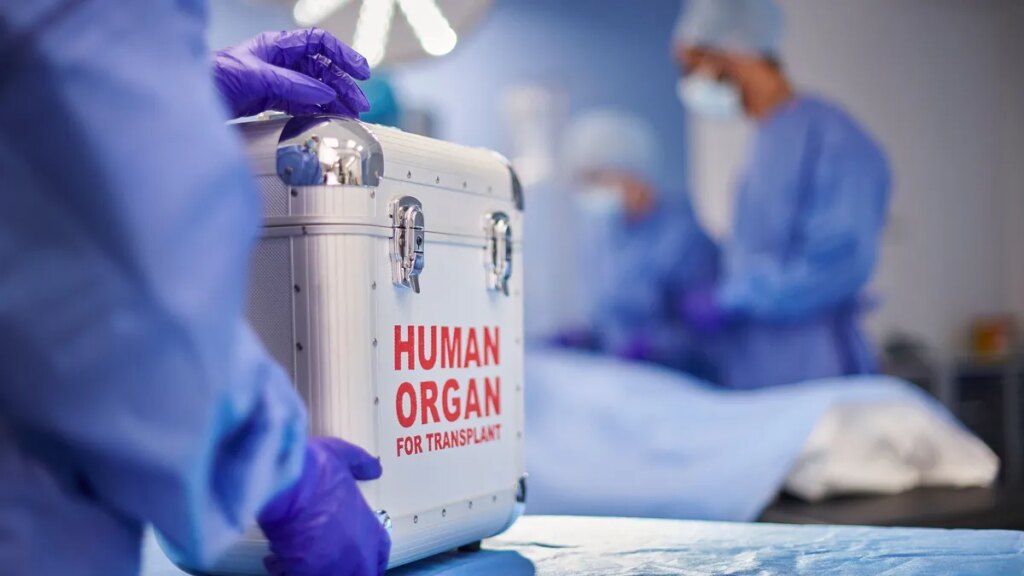
Milestones in medicine
A donor heart can survive 1,600 kilometers – and beat without stopping
November 24, 2025 – 11:41Reading time: 2 minutes

The heart beats 1,600 kilometers away – and even continues during surgery. Doctors have achieved a “revolution” in Italy.
The Molinette University Hospital in Turin reported an unprecedented success: for the first time, a donor heart from Athens was transplanted, which continued to beat continuously throughout the journey and procedure in its recipient. The 65-year-old patient waited a year to get a new heart. After surviving a heart attack, he suffered from severe heart muscle weakness.
A “revolution” is what those in charge of the heart center call a successful procedure. Normally, the heart should be inserted into the recipient as quickly as possible after it is removed. It may survive without a blood supply for a maximum of four hours. The network then dies. In this case, the so-called ischemia can be completely avoided. The heart is supplied with artificial blood flow for a full eight hours – first in a special machine, then in the recipient’s body.
The Greek donor died in an Athens hospital. The clinic reported the case to the national transplant center. Shortly after, the Italian medical team left for Athens by private jet. Removal begins around midnight. The heart is immediately placed in a mobile perfusion machine, a high-tech device called an “OCS Heart” that supplies blood and oxygen to the organ.
While still in Athens, the heart begins to beat again – outside the body. He was flown to Turin in this condition. The recipient was already lying on the operating table.
In Turin, surgeons opened a new chapter in transplant medicine: the heart does not – as usual – stop and then restart. Instead, they insert the beating organ directly into the patient’s body. First they connected it to artificial blood circulation. Then they removed the perfusion machine and the heart continued beating.
A team led by heart specialists Massimo Boffini and Antonino Loforte transplanted the organ into the Italian pericardium. Everything went without complications. Patients can leave the intensive care unit in just a few days.
This procedure shows that this new technology can overcome a crucial weakness in transplantation medicine. Until now, the limited time between collection and transplantation was a risk and logistical challenge.
Now things look different. If the donor heart is no longer placed on ice but is actively supplied with blood, it will remain functional for significantly longer. This not only opens up new opportunities for patients, but also for international donations – as in this case from Greece to Italy.





